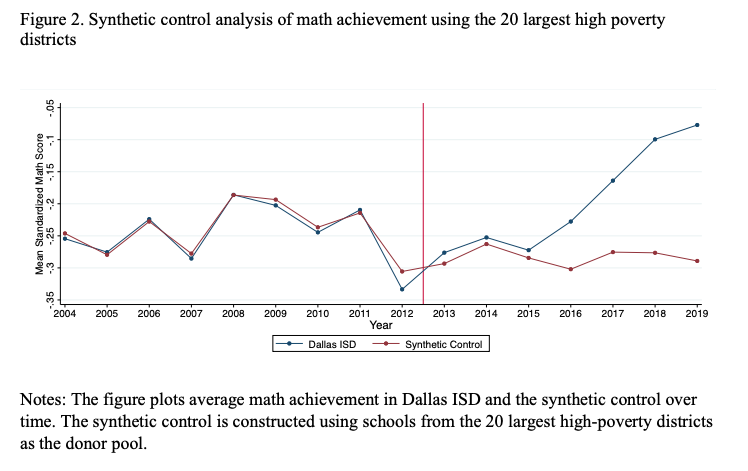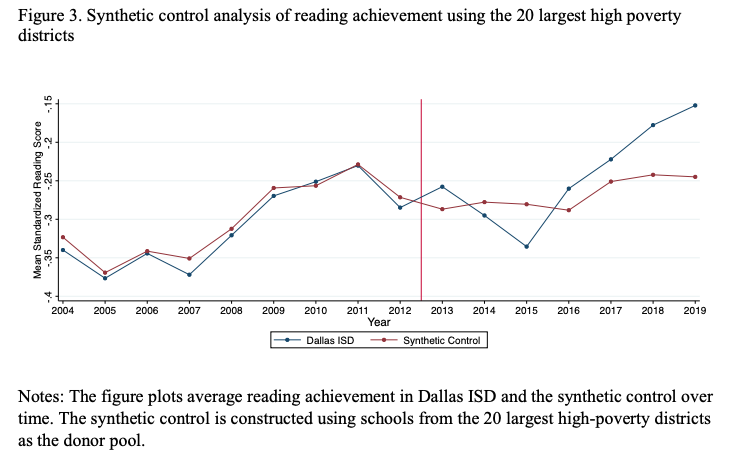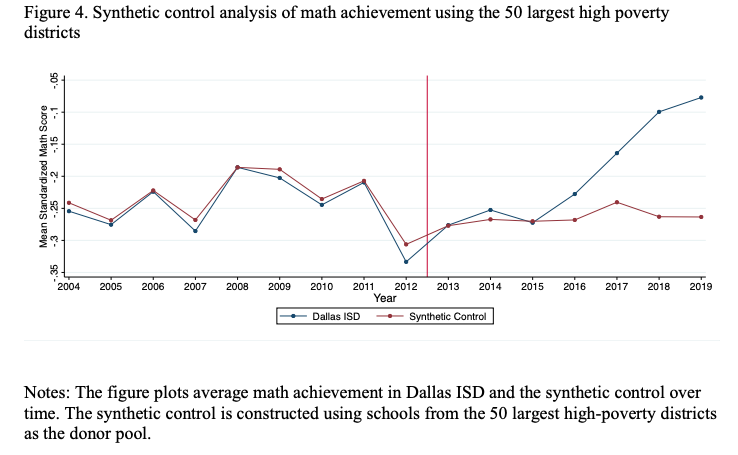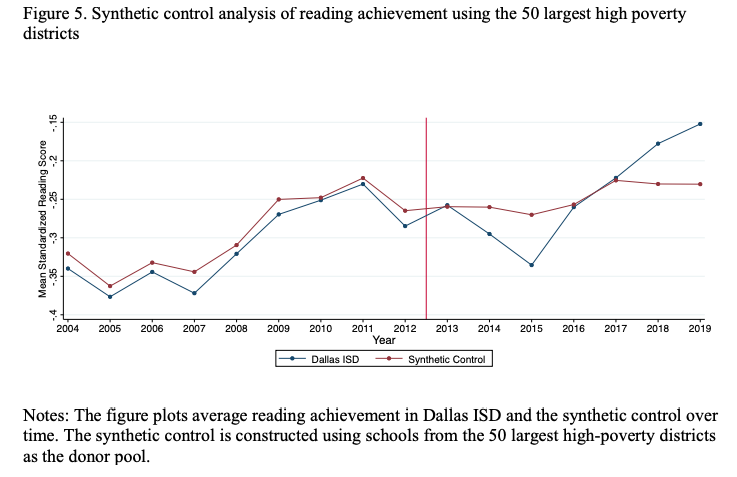Replacing rigid teachers’ union salary schedule increased math and reading achievement
A new working paper from the National Bureau of Economic Research found that replacing salary scales based on experience and educational attainment with those based on evaluation scores resulted in positive and significant effects on math and reading achievement that increase over time.
The researchers studied the comprehensive educator evaluation and pay reform systems introduced in the Dallas school district in 2013 for principals and in 2015 for teachers. The multiple-measure evaluation systems “align compensation with effectiveness,” which other studies have linked to higher student test scores, and “establish incentives for administrators to engage in rigorous evaluation and to support teacher improvement.”
From 2015 to 2019, “aligning the relationship between educator effectiveness and pay dramatically strengthened performance incentives,” contributed to keeping above average teachers in the district, and raised math and reading achievement by statistically significant standard deviations.
The district rates educators on the basis of their contributions to student achievement, supervisor observations and student or family feedback and uses the aggregate evaluation scores to place educators into ratings categories that are the primary determinant of salary. To protect the budget from tendencies toward evaluation inflation and deter the arbitrary treatment of teachers, the systems fix the distributions of teacher and principal ratings, and [the principal evaluation system] includes a component that penalizes principals for a lack of alignment between their subjective teacher evaluations and effectiveness at raising achievement.
To accurately compare the Dallas district’s achievement to achievement in other districts under the salary schedule serving similar students, the researchers created a synthetic control district from elementary and middle schools in large, high-poverty districts. “The synthetic control estimates reveal positive and significant effects of the reforms on math and reading achievement that increase over time.”
The Dallas school district’s evaluation systems replaced rigid salary schedules that were based on experience and educational attainment, or “steps and lanes,” which is considered the most common salary schedule districts use and the one that reigns supreme in teacher union collective bargaining agreements.



